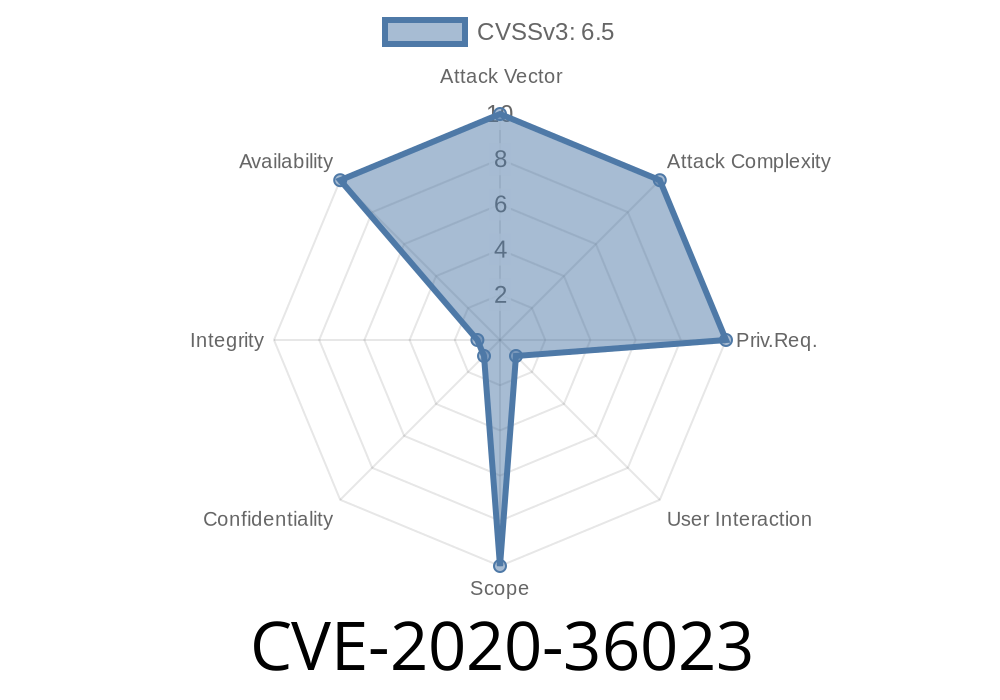A recent vulnerability (CVE-2020-36023) was discovered in the popular PDF rendering library freedesktop poppler, specifically in its version 20.12.1. This vulnerability allows remote attackers to cause a denial of service (DoS) through a crafted .pdf file, targeting the FoFiType1C::cvtGlyph function. In this post, we'll delve deep into this issue's details, provide code snippets for demonstration, and offer links to the original references for better understanding.
Exploit Details
The vulnerability exists within the FoFiType1C::cvtGlyph function that is intended to convert glyph data. When a maliciously crafted .pdf file is fed, it triggers an infinite loop in the said function. This loop causes the program to hang, leading to a denial of service attack. The victim, in this case, is the end-user who unknowingly opens the crafted .pdf file and subsequently renders the system unresponsive.
Here's an excerpt from the poppler source code where the vulnerability exists
// File: fofi/FoFiType1C.cc
void FoFiType1C::cvtGlyph(int offset, int length, int nBytes, char *glyph, Guchar *endPtr) {
[...]
Guchar *cvtPtr;
cvtPtr = charstringEnd;
while (cvtPtr < endPtr) {
[...]
if (op == 12) {
op = (int)*cvtPtr++;
switch (op) {
case : // dotsection
[...]
break;
case 3: // and
[...]
break;
default:
// unknown operator
break;
}
[ ... ]
}
}
} // end of the function
The vulnerability lies in the lack of bounds checking while processing the crafty .pdf file. This absence causes the function to enter an infinite loop, resulting in the program hanging indefinitely.
Original References
1. NVD - CVE-2020-36023: The original vulnerability reference containing detailed information on CVE-2020-36023.
2. freedesktop poppler: Official website of the freedesktop poppler project where you can find documentation, source code, and other relevant information.
3. poppler source code repository: The code repository for poppler where you can browse/download the source code and analyze the vulnerable function (FoFiType1C::cvtGlyph) first-hand.
Conclusion
The discovery of the CVE-2020-36023 vulnerability within the widely-used freedesktop poppler library highlights the importance of careful code analysis and ensuring software security. We encourage developers to apply the necessary patches to mitigate this issue and assist in safeguarding users against potential denial of service attacks.
Through this post, we aimed to provide an overview of the vulnerability, including the understanding of its exploit, the relevant code snippets, and links to the original references. By addressing such software security concerns through thorough analysis and prompt action, we can collectively work towards a safer digital environment.
Timeline
Published on: 08/11/2023 14:15:00 UTC
Last modified on: 08/17/2023 13:28:00 UTC
